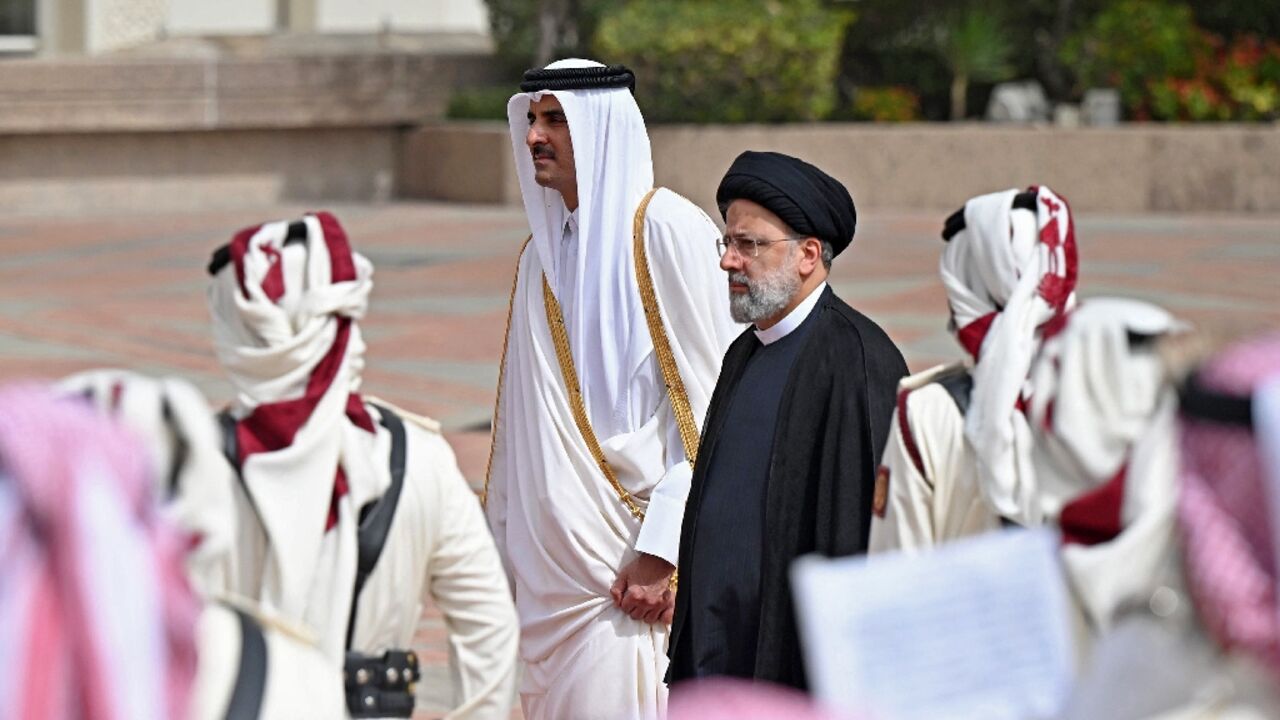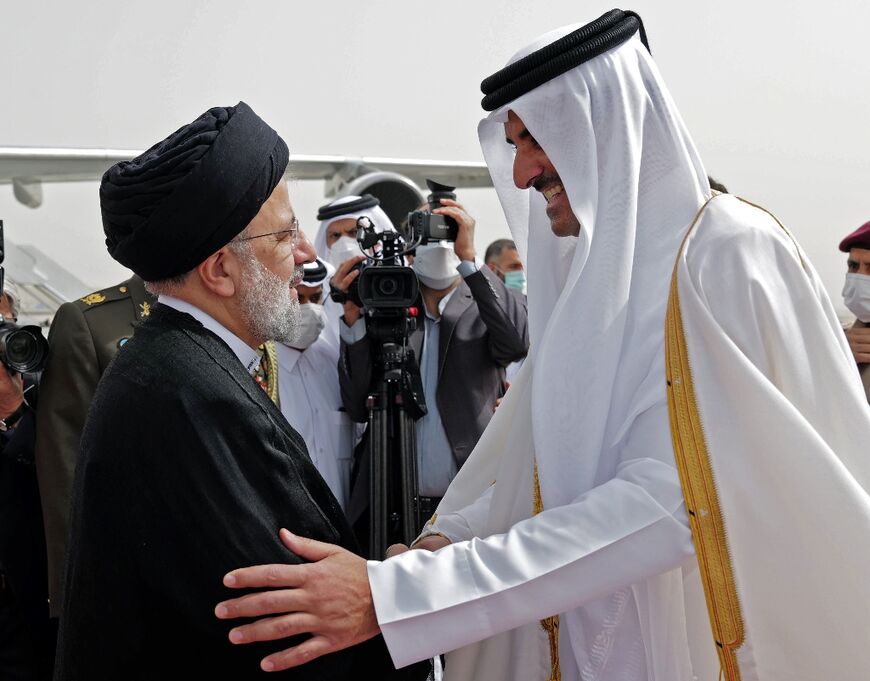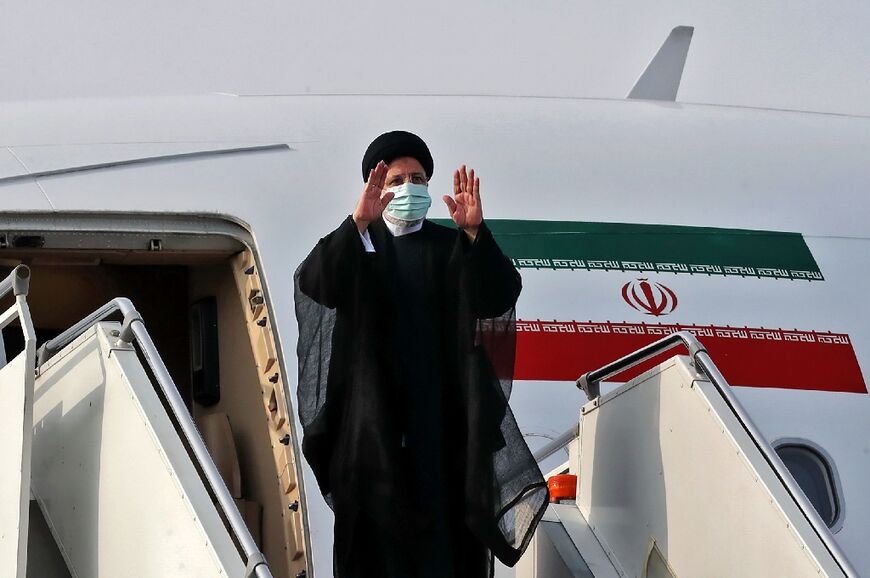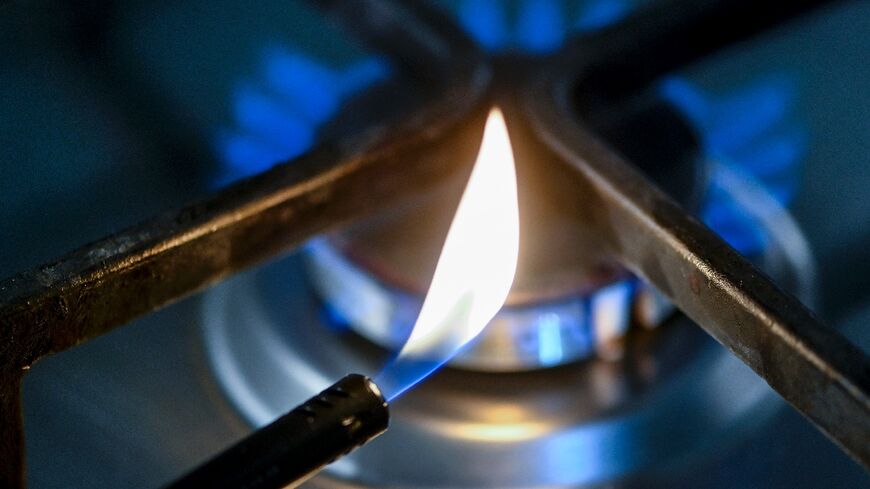Iran hails nuclear talk 'progress' but Raisi insists US sanctions end

Iran Monday signalled "significant progress" in talks on reviving a stalled accord on its nuclear programme but President Ebrahim Raisi, on his first visit to a Gulf state, again insisted that Washington must lift its crippling sanctions.
Iran's ultraconservative president, a personal target of the US sanctions, spoke out ahead of a summit of natural gas exporting nations in Qatar. The summit will take place against the backdrop of mounting tensions in Ukraine and reported progress in efforts to restore the 2015 deal limiting Iran's nuclear programme.
The United States withdrew from the nuclear accord in 2018 under former president Donald Trump, saying it was not tough enough in curtailing Iran's weapons ambitions. Tehran has always denied seeking an atomic bomb.
But months of negotiations in Vienna have brought the two sides closer to a revived deal.
Iran's foreign ministry said Monday that "significant progress" has been made and the number of outstanding obstacles had been "considerably reduced".
"But the problems that remain are most difficult, the most difficult and most serious to be resolved," it added.
Talks on reviving the Joint Comprehensive Plan of Action (JCPOA) resumed in the Austrian capital in November, after originally getting underway in April before stalling for months after Raisi won the presidency in June.
The dialogue involves Britain, China, France, Germany and Russia directly and the United States indirectly.
After arriving in Doha and meeting Qatar's emir, Sheikh Tamim bin Hamad al-Thani -- a close US ally who has encouraged the two sides to narrow their differences -- Raisi again took aim at the US sanctions that have ravaged his country's economy.
- 'Lift the main sanctions' -
"The United States must show their desire to lift the main sanctions," he said.
"To reach an accord, it is necessary to guarantee the interests of the Iranian people, in particular the lifting of sanctions, (give) a strong guarantee and end dossiers of a political character."
Raisi was named in US Treasury sanctions in 2019. The trip to Qatar is only his fourth abroad since he took office in August.
Qatar has added the Iran nuclear dispute to its list of diplomatic hotspots where it has taken a behind-the-scenes mediation role and the emir called for more dialogue to settle the showdown.
Qatar's Foreign Minister Sheikh Mohammed bin Abdulrahman al-Thani went on an unannounced visit to Tehran shortly before the emir met US President Joe Biden this month in Washington.
Sanctions have badly hit Iran's oil and gas revenues and the Tehran government is anxious to get new investment and customers.
The gas exporters' summit has been dominated by Ukraine tensions that have raised prices and European fears that its supplies of Russian gas may be cut.
The United States has asked Qatar to help Europe by preparing emergency supplies if the Ukraine crisis worsens.
But producing nations say they will not be able to provide substantial amounts of replacement gas if sanctions against Russia do affect Western Europe.
Raisi and the Qatari emir will be joined at Tuesday's summit by Algeria's President Abdelmadjid Tebboune and Trinidad and Tobago's Prime Minister Keith Rowley. Energy ministers from the other seven forum members, who include Russia, will also take part.
Ministers from the 11-member group met on Monday to approve a summit statement that industry analysts predicted would touch on the lack of spare supplies that could help Europe, where consumers are already paying record prices for gas.
Qatar and other countries have insisted that massive investment is needed in gas infrastructure, and that they need the certainty of long-term contracts to be able to guarantee supplies to Europe.
The European Union has long resisted the 10, 15 and 20-year contracts signed by other major customers for Qatar's gas, which include China, Japan and South Korea.







